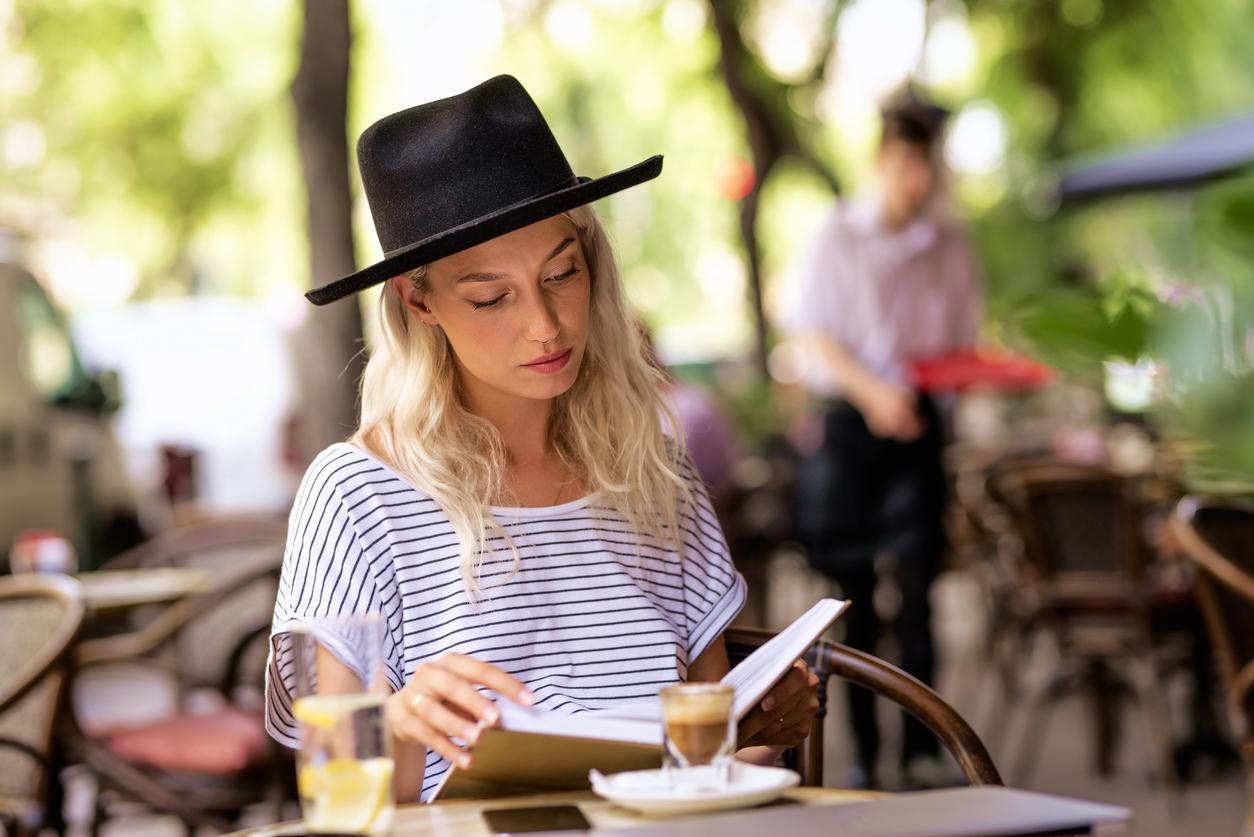#1 Live at your own pace
Getting out of the pace of others, work, family, a privilege? The arrival of paid leave in active lives, societal changes (rights acquired by women), the generalization of the use of psychoanalysis, the demonization of divorce and the single lifestyle have made it possible to change the image of ” time for yourself”.
This explains, among other things, the emergence of personal development and its success. Jogging, reading, a walk, a weekend, a solo movie are no longer considered with commiseration, but with envy. “Solitude responds to the need to live at your own pace, because you risk becoming saturated to live only at the pace of others, work, family, couple. Finding moments for yourself is social tightrope walking”, explains Hervé Magnin, psychotherapist.
Roman, 42 years old, always needed to oxygenate, aside . “There is a fatigue in seeing people, I feel like I’m invested a lot in the moment, I spend crazy psychic energy trying to be with others. When I cut myself off from this background noise, I’m more in tune with my thoughts. It’s very soothing.” For this lover of chosen confinement, the Covid period was interesting to observe: “This collective solitude, I found it very inhabited by the relationship with the other, I thought a lot about my friends, I got angry with some too, because the fact of not seeing each other made the relationship more present. I felt very lucky not to have found myself upset by all this.
#2 Focus on yourself
We often tend to link isolation and mental health, and rightly so: humans are gregarious animals and many studies show that the loneliness suffered has an impact on mental and physical health. But the reverse is just as problematic. “The urge to loneliness that many feel is exacerbated by capitalist society (which is afraid of emptiness) and by technology. Current sociability responds to compensation mechanisms, we repeat rituals that are there to fill a void and we does this until you feel sick. When you get to the end of this gagging, there can be an awareness, a rejection. Social overstrain can lead us to send everyone for a walk or go on a Buddhist retreat” explains Hervé Magnin, who rather encourages taking the lead, desacralizing the social void through chosen moments of solitude.
Psychologist Claire Mizzi agrees: “Our society is a racing machine: we always need more friends, more work, leisure, it’s the race for positive energies. All this causes emotional avoidance, we lose contact with ourselves, a being who requires introspection, silence. ” The psychologist strives to mark the difference between pause time and boredom. “It’s a time of choosing to be without others, which is hard and nerve-wracking because so many people need to run away from each other, encouraged by the herdiness of society. Yet it’s a critical time to detect weak signals of psychological or even physical distress: it takes silence to feel some pain.”
#3 Free your imagination
It goes without saying that social ties are the backbone of the construction of individuals. They are the ones who give the codes, the guidelines, the procedures to follow. “The need for social ties also leads us to be very critical of ourselves, and to put on blinders. If we are too dependent on the valuation by others, we can become a chameleon and in the end only be what others expect of us, explains Claire Mizzi. one leads and one’s deep aspirations, which one has sought.” This is how the psychologist explains why many people decide to change their lives, after having completed an honorary course to please others.
In order not to live in contradiction late on, it is therefore important that contact with one’s imagination or one’s interiority be established as soon as possible. This is why many child psychiatrists advise letting the child play alone so that he learns to tell stories, to fend for himself, to be self-sufficient. A cardinal construction for its sociable personality, but also for its creativity.
When he was little, Guillaume, 35, spent long hours alone at home. A nurse at the hospital, her mother raises her on her own. “I have always experienced solitude as positive and I have I always need to isolate myself, for moments, days, weeks, to think about things. The interference, the permanent irruption of the whole world in your life, is extremely painful. To fill my batteries, I read, it’s the most absolute form of solitude through escape and imagination. » To make important decisions, the boy matures his thoughts before taking advice from others. With this balance, Guillaume became a writer, but does not consider himself a copyist monk, alone in his cell. “I need to be alone when I write my texts, but I have to have them read; without feedback from others, they do not exist. Loneliness must remain a permanent dialogue, because if we lock ourselves up and we don’t confront the opinion of others, we fail. »
#4 Leaving to find each other
Solitude, if one chooses it, is to be free, autonomous, capable. And it’s especially telling for people who have only very recently gained the freedom to live, to come and go, without a chaperone. Noémie was born accompanied. After sharing the same uterus as her twin brother, the young woman with a fiery temperament quickly felt the need to isolate herself, to be better with others. “When I was little, I needed my room, my space, I threw tantrums to be alone, I read a lot, I always needed space. Physically, too, I don’t like being stuck to me, I want to be left with this physical space to express myself.”
Her freedom, Noémie cherishes it and devotes trips to her, “I love going with friends, but moving forward into the unknown without the projections or desires of others, it’s a very special exercise, it’s absolute freedom.”
A reflection that does not surprise Katia Astafieff, 46, who has been traveling alone for 25 years. A question of balance for her. She is the author of “How to travel alone, when you are small, blond and adventurous” (Pocket). Her adage: “Traveling alone is the best way not to stay alone.” After taking a sabbatical year to cross Asia on the Trans-Siberian, the adventurer engages the young women to cast off the moorings alone. “I went hiking alone in the Canadian woods for a month, it was different than being among people, but I never felt alone: we observe, we immerse ourselves in nature, we listen to the birds, you have to think about things, anticipate to simply survive.”
Read also :
- Talking to yourself is sometimes a sign of good health
- Loneliness linked to increased risk of diabetes
- Loneliness would have been identified in the brain
Our Experts:
- Hervé Magnin, psychotherapist, author of Positive Loneliness, ed. Youth.
- Claire Mizzi, psychologist, co-author with psychiatrist Céline Tran, from Your Best Friend is you, ed. pocket.

















